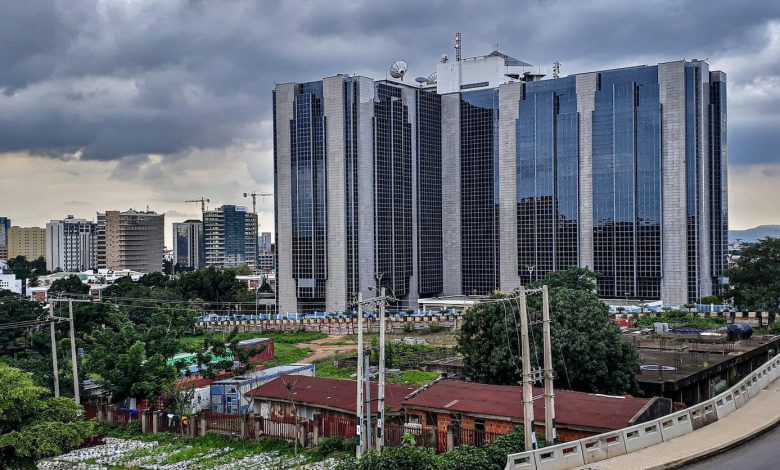Tackling Corruption by Improving Financial Inclusion in Nigeria

To realise its ‘powerhouse’ potential, Nigeria must tackle endemic corruption, increase financial inclusion, and foster trust in the integrity of its financial system.
Earlier this year, alongside South Africa, Nigeria was added to the Financial Action Task Force’s (FATF) so-called ‘grey list’ of countries with strategic deficiencies in their anti-financial crime regimes. Furthermore, there are persistent economic issues ranging from inflation to unemployment that not only affect the country’s overall economic outlook but also induce uncertainty, jeopardising the integrity of the country’s financial institutions. As the largest economy in Africa, Nigeria has immense potential. It possesses the resources, population, skills, talent and capability to make it a true ‘powerhouse’ of Africa. While the country has the institutional and legislative frameworks to address its financial integrity challenges, it lacks targeted and effective implementation. Only by strengthening the integrity of its financial system through dismantling corruption, alleviating economic challenges, and fostering trust in the financial system to boost financial inclusion and investment will Nigeria realise its potential.
A Push Towards Digitalisation to Tackle Corruption
Nigeria is known for a range of money-laundering and terrorist financing crimes, mostly driven by the endemic problem of corruption. Both public and private sector actors – including the media, NGOs, religious institutions and even terrorist organisations like Boko Haram – engage in corrupt practices for profit, reflected in Nigeria’s low scores in various global rankings and indices of corruption. However, addressing corruption is not a new departure for the country. There are frameworks and institutions in place to combat money laundering and terrorist financing, such as the Economic and Financial Crimes Commission (Establishment) Act, the Money Laundering (Prohibition) Act and the Independent Corrupt Practices and Other Related Offences Commission, all of which are intended to address Nigeria’s corruption challenges.
In the most recent high-profile anti-corruption initiative, the Central Bank of Nigeria decided to redesign and replace its old currency notes. This measure was intended to address issues related to corruption, kidnapping, counterfeiting and other financial crimes, as well as to incentivise the take-up of digital banking. Nigerians certainly increased their use of alternative means of exchange such as electronic and digital banking as a result. Data from the country’s Inter-Bank Settlement System reveals that cashless transactions increased nearly 45% year-on-year in January 2023. Furthermore, the value of transactions from mobile transfers increased nearly 118% over the same period. A perhaps less welcome consequence was that this policy also precipitated a move towards cryptocurrency.
But this initiative also created unintended consequences – ranging from disrupting day-to-day business and access to basic food and healthcare, to rioting and obstructing the smooth functioning of the large informal sector – adding to the pre-existing macroeconomic issues of high inflation and high unemployment. But perhaps the most fundamental impact of this move was to highlight the extent to which such a significant portion of the population operates using cash, outside the formal financial system – arguing for a much greater commitment to increasing financial inclusion.
Of greatest need is to boost the level of ‘trust’ in institutions, banks and all agents of change in the financial system, including via ensuring the stability of the country’s financial infrastructure
These consequences were very similar to those faced by Indians during demonetisation in 2016. The overnight withdrawal of two of the largest denominations – 86% of total cash in circulation – had deep and immediate economic consequences for the largely cash-dominated country. The motivations behind this withdrawal were similar: to take effective action against unaccounted or ‘black’ money and counterfeit currency. While the move led to a massive setback, it provided an opportunity for the country to fast-track its efforts to bring the large unbanked proportion of the population under formal financial control and to further digitise the economy. Today, almost seven years after the move, India has raced ahead with 46% of global real-time digital payments originating from the country in 2022, and the percentage of the population with bank accounts increasing to 77.5% in 2021 from 53.2% in 2014.
Next Step: Improving Financial Inclusion by Fostering Trust
The current National Financial Inclusion strategy defines inclusion as enhancing accessibility for both the banked and the unbanked. Data shows that only 45.3% of the population have bank accounts, while only 51% of Nigerian adults engage in formal financial services and only 27% are considered financially healthy. Of greatest need is to boost the level of ‘trust’ in institutions, banks and all agents of change in the financial system, including via ensuring the stability of the country’s financial infrastructure.
First, financial literacy in the country must be enhanced, including by providing education on the use, cost and benefits of financial services and financial planning. Second, improving infrastructure for the delivery of financial technology services is required, ranging from fast and reliable internet service providers and ensuring a constant power supply to encouraging the use of digital payment alternatives backed by effective IT services. Improving national infrastructure to ensure access for all not only improves inclusion but also helps to address the trust deficit, which should attract investment from the private sector and thus further improve financial services. This also includes incentivising platforms that promote public-private collaboration and creating suitable conditions for FinTech start-ups and businesses to launch their services. Combined with the currency redesign, these measures should encourage greater use of the formal financial system.
The Crypto Conundrum, the e-Naira Solution
However, the currency redesign process created an unfortunate unintended incentive – a rise in take-up of cryptocurrency. Although the Central Bank has directed institutions to close accounts used for crypto-asset transactions, Nigeria is one of the low- and middle-income countries with the highest rate of cryptocurrency adoption. Data from the Global Crypto Adoption Index by Chainalysis shows that Nigeria ranked 11th for overall use and 17th for peer-to-peer exchange in 2022.
Nigeria’s growth path has the potential to be a model for other countries, not just on the African continent but also among other peer economies
One way of combining this interest in cryptocurrency with the need to achieve greater financial inclusion may lie in boosting the Central Bank’s own digital currency, the e-naira, for which the rate of adoption remainslow. Promoting adoption of the e-naira (as opposed to privately issued cryptocurrencies that lack the security provided by a state-backed coin which acts as a cash equivalent) could help achieve a number of valuable objectives, including bringing more people into the formal financial system, protecting investors from the risks of privately issued cryptocurrencies, and supporting a stronger response to corruption and financial crime.
Nigeria’s approach to regulating cryptocurrencies must include not only encouraging the use of an alternative Central Bank-backed digital currency, but also enforcing a cryptocurrency supervisory regime consistent with the requirements of the FATF, thus fostering integrity.
Nigeria’s growth path has the potential to be a model for other countries, not just on the African continent but also among other peer economies. While Nigeria’s grey-listing by the FATF may result in a short-term economic setback, the country still has the potential to be a powerhouse – but only if the integrity of its financial system is assured. This will require commitment to and prioritisation of the implementation of regulatory frameworks that disrupt corruption; addressing current economic problems; embracing financial inclusion; and above all, building trust in the national financial system among citizens and investors alike.
Chandana Seshadri is a Research Analyst at the Centre for Financial Crime and Security Studies at RUSI. Her area of focus is on sanctions and countering proliferation financing.
The views expressed in this Commentary are the author’s, and do not represent those of DefenceTimesNG or any other institution.
Have an idea for a Commentary you’d like to write for us? Send a short pitch to Publisher@defencetimesng.com and we’ll get back to you if it fits into our research interests.





